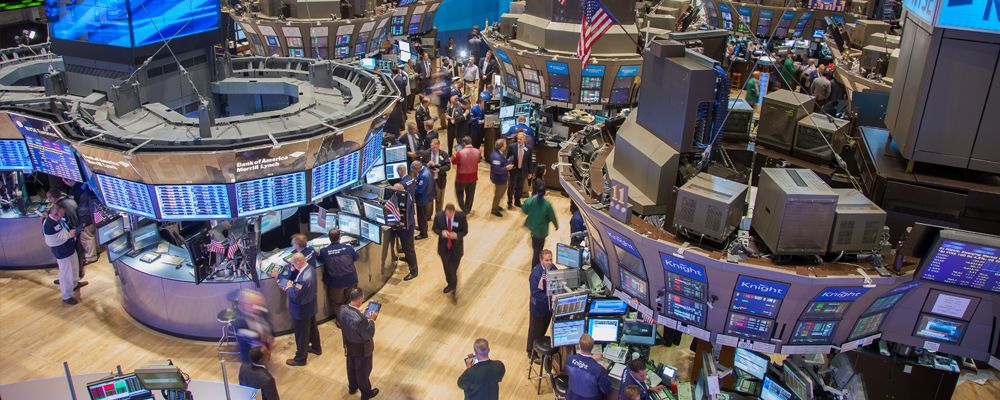Some air is starting to leak out of the reflationary balloon.
- Thursday, June 22, 2017
 Since the summer of 2016, when evidence of China’s economic stimulus started to impact upon markets, the hopes of a rise in global growth and a return of inflation have grown. This hope gained impetus when Donald Trump was elected President of the USA as he was expected to implement tax cuts and increase government spending. The major stock markets of the developed world reached new all-time highs in 2017 but now some air is now starting to leak out of the reflationary balloon. Markets are starting to rein in their expectations of inflation growth over the next few years in the US, UK and EU.
Since the summer of 2016, when evidence of China’s economic stimulus started to impact upon markets, the hopes of a rise in global growth and a return of inflation have grown. This hope gained impetus when Donald Trump was elected President of the USA as he was expected to implement tax cuts and increase government spending. The major stock markets of the developed world reached new all-time highs in 2017 but now some air is now starting to leak out of the reflationary balloon. Markets are starting to rein in their expectations of inflation growth over the next few years in the US, UK and EU.
The International Monetary Fund (IMF) are forecasting global GDP to hit 3.4% this year and 3.6% in 2018 as overall global inflation is expected to rise. Economic surveys continue to show improving global activity driven by a manufacturing upturn in many countries which in turn is boosting international trade.
However, there is always need for caution. China, a key driver of global growth is now starting to tighten monetary conditions and credit controls. China led improvements in global activity throughout 2016 and into 2017 with an ‘official’ GDP growth of 6.9% but recent mortgage restrictions and tighter monetary policy are expected to moderate ‘official‘ growth to 6.4% this year and 6.1% in 2018.
Confidence in Mr Trump’s ability to push his election campaign policies through Congress has suffered a blow since the initial failure to repeal the Affordable Care Act. It is looking increasingly likely that the fiscal stimulus and tax reforms promised by President Trump will be delayed and most likely smaller than original promised.
US economic data recently fell behind expectations. Inflation dipped from 2.7% to 2.4% by the end of Q1 while GDP growth has flattened it should still hit 2.1% this year. Against this backdrop it is expected that the Federal Reserve will raise interest rates twice more this year and begin to reduce the size of its balance sheet towards the end of the year.
US equities are now looking expensive relative to other developed markets. Equity in Europe, Asia, Japan and emerging markets are more reasonably priced and gains in these regions are being driven by earnings growth.
Many economists expect a slowdown in the UK as higher inflation dents consumer spending which is a key driver for the UK economy. According to The Office for National Statistics (ONS), UK growth fell more than expected to 0.2% in the Q1 from 0.7% in Q4 2016. UK GDP is still forecast to hit 1.9% this year but reducing to 1.3% in 2018 as activity slows. However, we feel that inflation will not hit the higher predictions recently made, peaking at 3% , and that the UK economy will remain more robust than some expectations.
The Eurozone is showing economic improvement. The continuing strength of business surveys and economic data suggests that European GDP growth will hit 1.7% in 2017 as strong export growth from 2016 continues into 2017. Labour markets have continued to strengthen as more jobs are created. Reflecting this more favourable outlook the European Central Bank (ECB) improved its Eurozone growth forecasts. The bank is still however content on maintaining its current level of monetary easing but may start to reduce its quantitative easing programmes by the end of the year.
Japan’s economy has gained momentum. The forecast for GDP growth is 1.4% this year and 1.3% next as both global demand and the weakness in the ¥ has resulted in export growth. The improvements in consumer confidence, continuing government stimulus and improved labour markets should all support consumer spending. Despite this good news, Japanese inflation is still expected to fall below the Bank of Japans (BoJ) 2% target. For this reason loose monetary conditions including 0% bond yields are expected to be maintained.
Despite the tightening of monetary policies in China, the emerging economies are doing well. Emerging markets are on a much better footing this year than last and the pickup in global trade is benefiting economic prospects. The growth in the Indian economy particularly looks good. The reform driven growth agenda is driving economic gains. The passage of the sales tax reform and a standard state taxation rate illustrate this. It is forecast that India will grow by 7.2% in 2017 and 7.5% in 2018.

Chris Davies
Chartered Financial AdviserChris is a Chartered Independent Financial Adviser and leads the investment team.
About Estate Capital
Financial Services
Our Contacts
7 Uplands Crescent,
Swansea, South Wales,
SA2 0PA.
Tel: 01792 477763
